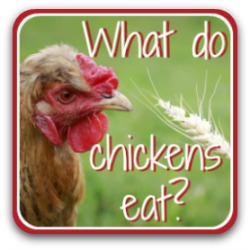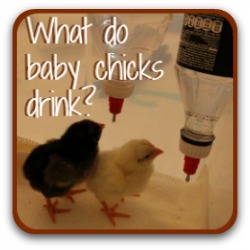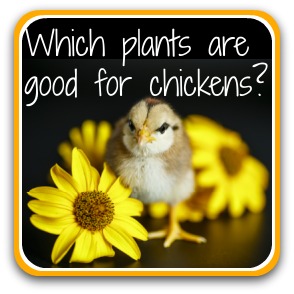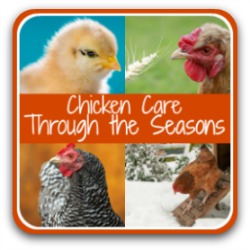Can chickens drink milk? Or beer?
It may sound like a bizarre question, but it's one I've been asked several times. The answer to one is "probably not", and the other a definite "no".
So what can chickens safely drink?
Chickens should never be given any form of alcohol to drink. Never.
I wouldn't have thought this was even an issue, but I've received emails and seen posts on forums by people thinking it funny to give chickens beer - and even neat vodka - and watch them start to stagger about.
Here's the thing...
Alcohol has been studied as a way to treat various ailments in chickens(1) and found not only to be ineffective but to cause damage, particularly to the liver.
It's tantamount to abuse. You will kill your chickens - and quickly. It's the same as giving them poison. No animal should ever be given alcohol. End of story.
So just don't do it.
Having got that out of the way...
Can (or should) chickens drink milk?
Here's the evidence from flocks that do.
The answer to that, as with so much in chicken keeping, is "no, but...".
Poultry are basically lactose-intolerant. That is, they do not have enough of the right enzymes to be able easily to digest milk or other dairy products. It can cause them to have diarrhoea and that, particularly in hot weather, can be fatal(2).
I would not, and do not, feed my chickens milk of any kind.
However (there's usually a "however")...
Paolo Parisi's dairy-fed flock: clever marketing or a milky bonus for chickens?
I know an Italian man called Paolo Parisi. Paolo lives in Usigliani, not far from Pisa in southern Tuscany. His eggs are famous, at least within Italy.
Why? They're said to be the creamiest, most delicious eggs ever. They're also among the most expensive, currently selling at around €4 ($4.50) per egg.
He keeps a chicken breed which most people in Italy have, and most people in the rest of the world at least know of: the Livorno, or Leghorn.
I have some Livorno hens myself. They're healthy, well fed and they free range, so their eggs, like all my other hens' eggs, are delicious.
 Two of my Livorno hens free-ranging in their lush pasture.
Two of my Livorno hens free-ranging in their lush pasture.But there's nothing extra-special about their eggs. Nothing that makes them stand apart from the rest of my flock.
Why, then, are Paolo's eggs so different?
The answer lies in milk - but not pasteurised and not cow's. He feeds his chickens grain, mashed with unpasteurised goat's milk. It's all they get to eat, and he reckons they love it.
The jury's out on whether Paolo's eggs taste so different as to command that kind of price, though. Some top Italian restaurants will use nothing else. Others say they're tasty, but not that different.
And there's no evidence (that I know of) about how feeding chickens goat's milk affects their eggs' nutritional value, particularly the fat levels. Although it stands to reason that lipid levels would be higher than eggs from chickens who are given only water to drink.
So is Paolo just a canny businessman, or has he really improved on the basic, delicious, highly nutritious pastured eggs we all have from our flocks every day?
The jury's out.
Chickens drinking milk: evidence from Bresse, France.
 The Bresse chicken - a product of a part dairy diet.
The Bresse chicken - a product of a part dairy diet.Some articles talk about poultry from Bresse, who are fed partly on dairy products, being positive evidence for providing backyard flocks with milk.
The "poulets de Bresse", though, known as the "king of chickens", are not bred for eggs but for meat. For part of their life they lead an ideal existence, free-ranging in beautiful green pasture.
I've seen them. I travel through Bresse most years on my way between Italy and the UK.
But then, they're closed in wooden cages in a darkened barn known as an 'epinette',(4) and fed an all dairy diet, including milk, for two weeks before slaughter. The sole aim is to fatten them, quickly, to provide a rich, creamy - and very expensive - meat.
Hardly what we'd want for our own backyard chickens.
Where does that leave chickens drinking milk in backyard flocks?
There's really only one thing chickens need to drink: water. And as a bonus for backyard chicken keepers, it's inexpensive, and freely available.
Will it harm your chickens if you decide to give them milk?
Some people living on farms will use leftover milk for poultry. "Raw" or unpasteurised cow's milk is without any doubt better than store-bought. But it's still hard for poultry to digest, and too much of it will affect their liver(2).
There's some, though slight, evidence that goat's milk beats cow's for tolerance, and unpasteurised goat's milk for certain comes out on top.
So if you're going to give your chickens milk, make it unpasteurised goat's milk. But limit the amount.
And ideally, keep the milk for your family, not your chickens.

Does milk provide necessary protein?
You'll see lots of articles online saying milk is a great source of protein for chickens. Milk does, of course, contain protein. But it also contains too much fat, even in semi-skimmed and skimmed varieties, for chickens to digest.
The result? Liver damage, and unhealthily overweight chickens which can lead to Sudden Chicken Death Syndrome.
Use a good quality feed plus healthy treats for your flock, and if possible, free range so they can find bugs and nutritious weeds. They will provide all the nutrition necessary.
High protein treats should not in any event be given all the time. There are specific reasons for adding protein to feed - find out what they are and what works best in this article.
Should chickens drink milk?
It's for each of us to take the available information and make a decision based on that and on our own individual circumstances.
For me, I choose not to offer milk. I have seen no evidence that it's necessary, or that it improves chicken's health. In fact, most evidence suggest that it harms chickens.
I don't have access either to unpasteurised milk or to goats, and I don't see the need. I have always chosen to offer plenty of cold, fresh water, and my chickens have done very well by it.
I choose to look at it this way.
Mammals nurse their young on their own milk. It's the best, most natural source of nutrition to ensure healthy growth.
Birds do not.
Milk is not a natural source of nutrition for birds in the wild. And too often we have seen outbreaks of disease because animals have been fed and kept un-naturally.
So for me, water is the safe, and natural, way to go.
 Providing cool, fresh water at various points in the run is the best way to keep your flock hydrated.
Providing cool, fresh water at various points in the run is the best way to keep your flock hydrated.Other pages you may find useful.
Sources.
A lot of "facts" you'll find on the internet are often people's individual views, based on inaccurate information repeated from poor quality sources.
The information I provide in this article and others is based not just on my own experience, but on evidenced facts from scientific, peer-reviewed research and books from highly respected and experienced poultry keepers such as Gail Damerow.
Some of the trusted sources I have used in this article are these.
1. Nikkila, E. A., and Ollila, O.: Effect of Alcohol Ingestion on Experimental Chicken Atherosclerosis. Pub. American Heart Association, 1959.
2. Hamilton, T. S., and Card, L. E.: The Utlilization of Lactose by the Chicken. Pub. Journal of Agricultural Research, Division of Animal Nutrition, 1924.
3. You can find out more about Paolo Parisi simply by searching online for his name. However, all his information is in Italian, which is why I haven't given a direct link. You will, though, find articles talking about his eggs.
4. Henley, J.: Top of the pecking order. Pub. The Guardian newspaper, 2008.
















